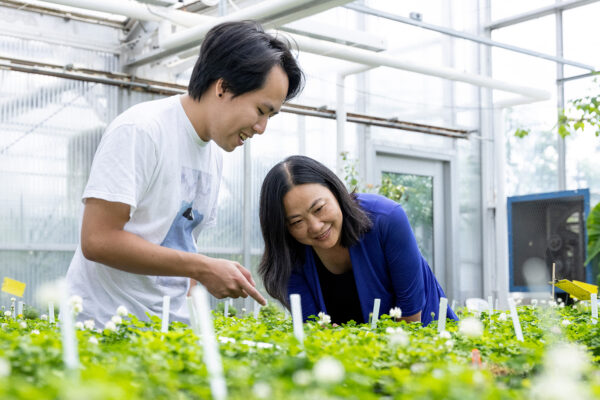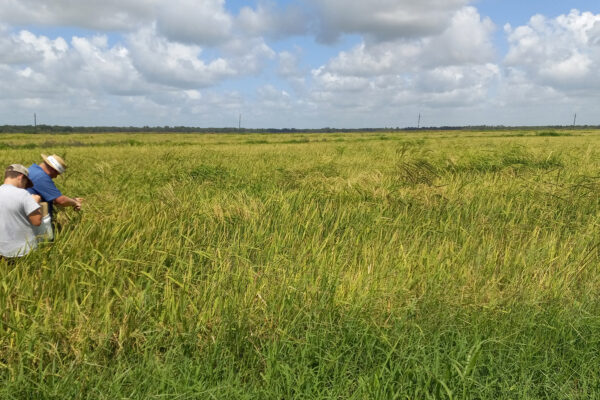
Cultivated plants provide people with food, fuel and medicine. But crops also face many types of stresses that threaten their growth and yields. Biologist Xuehua Zhong in Arts & Sciences at Washington University in St. Louis has won a $1.1 million grant from the National Science Foundation (NSF) for research aimed at developing more resilient crops that can adapt to changing environmental conditions and support sustainable agriculture.
Zhong and her team are working to understand how plants use biomolecular condensates — microscale compartments in cells that concentrate proteins and nucleic acids — to sense their environment and respond in the right ways to achieve fitness, resilience and productivity.
Zhong previously focused much of her work on understanding how plants cope with heat stress, with the ultimate goal of engineering plants that are more resilient to climate change. In 2024, she received a WashU Global Incubator Seed Grant for research on plant thermal stress. Her new NSF grant will allow her to take a closer look at what happens when plants face nutrient stress such as nitrogen deficiencies.
“Plants and humans use different strategies for dealing with stressors,” said Zhong, who is the Dean’s Distinguished Professorial Scholar and the program director for plant and microbial biosciences at WashU. “Plants must find a way to deal with heat one day and then drought the next day, or another kind of stress like nutrient stress. They need to quickly switch between their adaptive tools.”
One of the ways that plants can respond quickly involves turning on or off certain genes that are associated with stress tolerance.
Zhong is an internationally recognized expert in the science of epigenetics, the molecular processes that control the expression of genes without altering an organism’s fundamental DNA makeup. She and her team have become increasingly interested in how plants could be using biomolecular condensates to trigger epigenetic reprogramming and initiate a quick response to nutrient stress. “Biomolecular condensates are emerging as key players in sensing and translating environmental signals to direct a diverse list of cellular functions,” Zhong said.
Her new study could lead to new ways to engineer biomolecular condensates to improve nutrient allocation, growth and stress resistance. At WashU, Zhong participates in a scientific community led by researchers at the McKelvey School of Engineering and the Center for Biomolecular Condensates that is working to develop technologies, uncover the relevant physical principles and apply these principles to study and understand how condensates function in live cells.
Zhong conducts her research with a common model plant called Arabidopsis thaliana, or thale cress, but the results from this study will be readily applicable to a wide range of species. Given the importance of biomolecular condensates and epigenetic regulation in many biological processes, understanding how these condensates reprogram the epigenome to cope with the various stresses is a fundamental question relevant to both plants and animals.
The new project also involves a significant outreach component: Zhong and her team are planning a series of outreach events to share the research with the public, including developing science learning modules for K-12 students and summer science camp programming for high school students from Missouri and southern Illinois.
“Understanding how plants manage nutrient stress is crucial for developing nutrient-efficient plant varieties and ensuring a sustainable future food supply, ” Zhong said.


